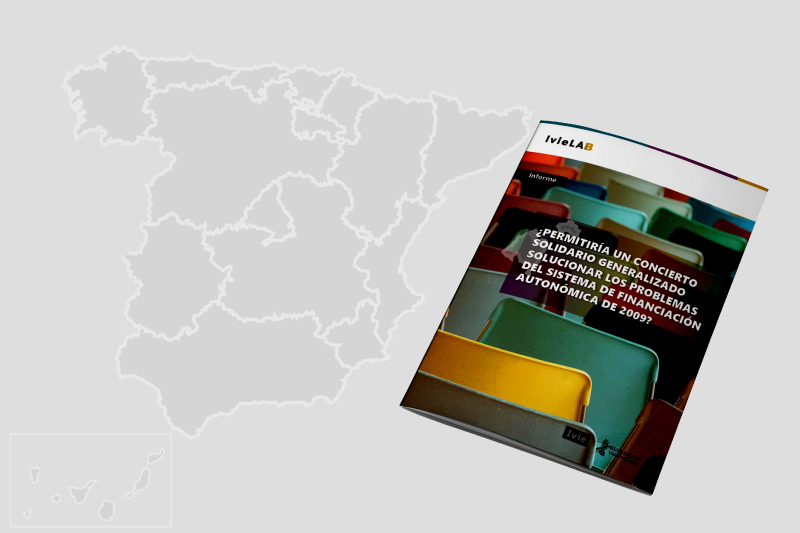Esta web utiliza cookies para que podamos ofrecerte la mejor experiencia de usuario posible. La información de las cookies se almacena en tu navegador y realiza funciones tales como reconocerte cuando vuelves a nuestra web o ayudar a nuestro equipo a comprender qué secciones de la web encuentras más interesantes y útiles.

The generalization of a financing system, such as the one proposed for Catalonia, could only solve existing problems if it is based on a transparent quota calculation and interterritorial solidarity, including chartered regions
Ivie has published a report, included in IvieLAB, outlining the characteristics of a generalized solidarity agreement for all the Spanish regions, both common and chartered, to improve regional funding
The Ivie has recently released a report within the IvieLAB program, in collaboration with the Valencian Regional Government, evaluating whether a financing model inspired by the agreement negotiated between the Socialists’ Party of Catalonia (Partit de Socialistes de Catalunya-PSC) and the Republican Left of Catalonia (Esquerra Republicana de Catalunya-ERC) could effectively address long-standing challenges of autonomy, sufficiency, and equity in Spain’s current financing system (SFA-2009). According to the authors—Francisco Pérez, Ivie’s Research Director, and Economist Juan Pérez—the effectiveness of such a model depends on how the solidarity agreement is implemented. They note that certain design choices could lead to meaningful progress in one or more of these areas, while others might result in stagnation or even deterioration.
To overcome the structural deficiencies of the SFA-2009 through a solidarity-based model, in which the Spanish regions manage their own tax revenues and then redistribute them between the State and other regional administrations, the report identifies several essential conditions. First, an agreement must be reached on the total contribution (quota) all regions make to the State. This consensus, established between regional and central governments, should guarantee financial sufficiency for both levels of administration. Second, fair distribution criteria among regions must be determined. The reports considers three possible approaches: two based on regional GDP or equal fiscal pressure, which would favor wealthier regions as they retain more resources; and a third criterion based on fiscal effort by citizens based on per capita income. The authors prefer the third one because the State also performs redistributive functions, making it reasonable that those with greater capacity contribute more.
In the same vein, the analysis proposes that, once the State’s share is allocated, each region should dedicate 80% of its remaining resources to an interregional solidarity fund, ensuring equal access to essential public services. The report recommends increasing the current Guarantee Fund from 75% to 80% of each region’s tax revenues, distributed based on adjusted population and territorial needs.
Finally, the study calls for a review of the financial privileges of regions with special tax regimes—specifically the Basque Country and Navarre—advocating for their inclusion in the general financing system and increased contributions both to the State quota and to the interregional solidarity fund.
If implemented under these conditions, the generalized solidarity agreement system (Sistema de Concierto Solidario Generalizado-SCSG) could significantly reduce resource inequality among residents of Spain’s regions currently in the system. However, the outcome would not necessarily match expectations regarding the special financing model proposed for Catalonia. While Catalonia would benefit from improved funding, the gains would likely be more modest than some projections suggest. On the other hand, if that model were implemented as an agreement between the State and Catalonia granting it a status similar to that of regions with special tax regimes, it would worsen existing interterritorial inequalities rather than resolve them.
This analysis was presented during the RIFDE Conference (Network of Researchers in Regional Financing and Financial Decentralization in Spain) held on May 20 in Santiago de Compostela.


